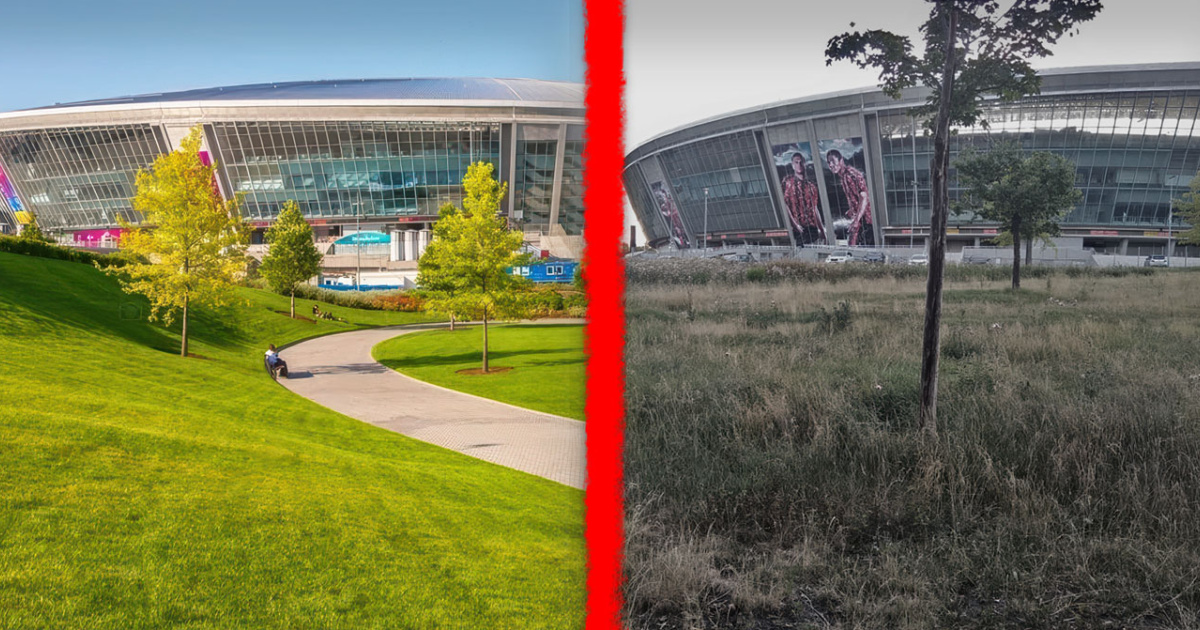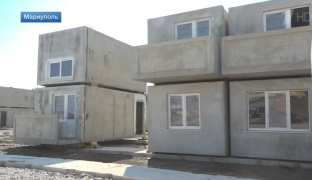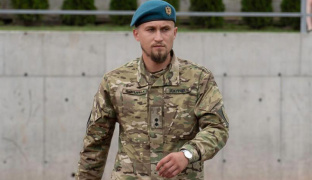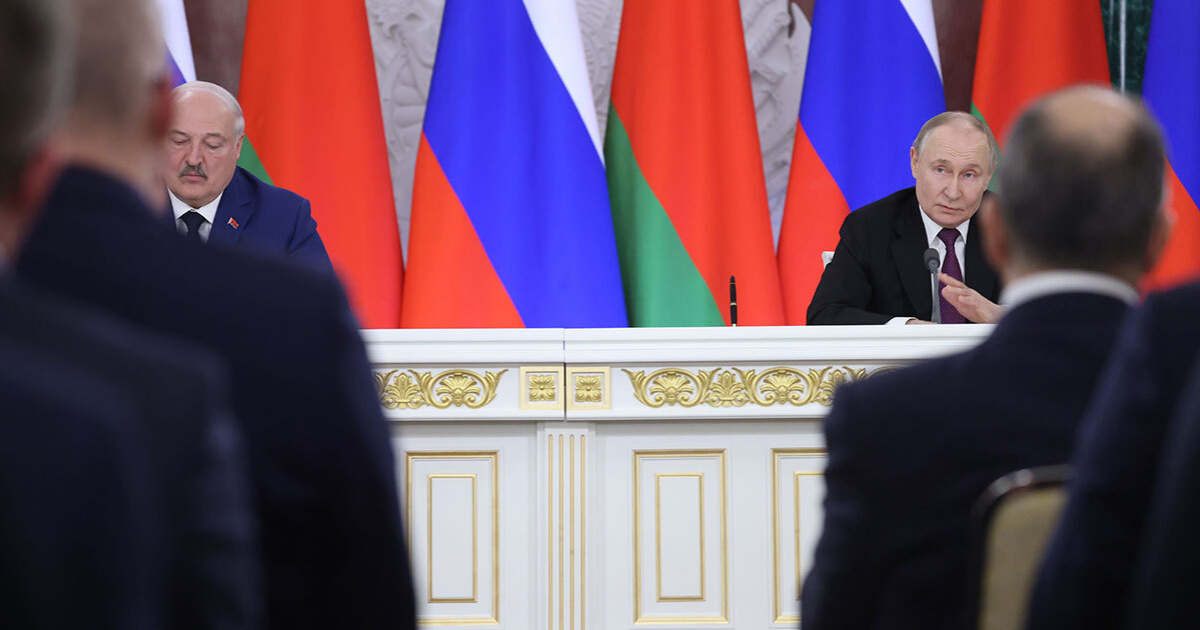
The research agency InfoSapiens, commissioned by the National Platform for Resilience and Unity, conducted a sociological survey in May 2024.
One of the questions focused on Ukrainians' willingness to interact with various social groups. It was revealed that only 23% are "willing" or "somewhat willing" to interact with residents of the occupied territories of Donbas, while 72% responded "no" or "rather not". This is the lowest indicator, with even less willingness shown only toward russians.
Even regarding residents of the co-aggressor Belarus, Ukrainians' social distance is shorter (27% willing to interact, 69% unwilling) than with citizens of Ukraine who have been living under occupation since 2014. Meanwhile...
Mariia loves Ukraine but cannot leave her sick mother in Donetsk. The elderly woman wants to die in her own home and refuses to move. Meanwhile, Mariia’s daughter lives in Kyiv, where Mariia occasionally visits for a week or two, though less often in recent years. We met at a café on Khreshchatyk St. the day before Mariia was set to return to occupation. She faced a long journey: Poland, then Belarus, followed by russia, and finally occupied Donetsk. I began with a question that has sparked much debate in Ukraine recently…
– Do Ukrainians who leave the occupation really return to Donetsk?
– They do return, but mainly to resolve issues related to their property, which russia might nationalize. Then they leave again. However, to do so, they must endure hell at Sheremetyevo airport, obtain a russian passport, and, in many cases, spend months in court if their property unexpectedly ends up under arrest.
– Is property seized because of unpaid utility bills?
– Not necessarily. A friend of mine left behind three apartments and moved away. She kept paying for all of them. Recently, she decided to sell and returned, only to find them all seized. It turns out someone filed a report saying no one lived there. A commission came, and the neighbors signed off. Now she’s been in court for nine months, stuck in Donetsk.
Another tactic they (the occupation authorities – ed.) use is when you arrive, you must register your apartment in Rosreestr registry. To do that, you need a russian passport (by the way, that’s a quick process—I got mine in just a week). You go to Rosreestr, only to find out that someone else, some relative, participated in the privatization. They might not even be registered there, just involved in the privatization or purchase! Then you have to personally bring all family members who are registered or have a share in the property. Not only must they be present in person, but they also need to have russian passports. Powers of attorney, even from russian embassies abroad, are no longer accepted—only the person themselves. And gathering everyone is often impossible. So, while you can formalize your share of the property under russian law, you still can’t sell the apartment because no one will buy just your share—everyone wants the whole apartment, not a portion of it.
This is the situation for probably one in three people. That’s why some people, especially the elderly, are forced to live there. Over time, they settle in, start receiving russian pensions, and stay. Not everyone can just up and leave their home to rent in an unfamiliar city.
– So, not everyone who arrives actually stays?
– I think there are very few like that in Donetsk. At least, I don’t know of any such cases. Maybe in Mariupol people stay because it was occupied more recently, and those who didn’t manage to settle in Ukraine were tempted by promises of compensation for destroyed housing and new apartments. That’s a factor. I’ve heard that people are returning to Volnovakha. But in Donetsk, I don’t know anyone who specifically came back to stay. Too much time has passed.
– Are they really compensating? Are new homes being given out?
– To a few, just to show on TV. Most people are not getting anything. And the housing quality is very low. On this trip, I met a woman who was returning from Mariupol to Africa, where she now lives with her family. She complained that instead of the three apartments she used to own, they gave her one, but the windows are single-pane glass. Not double or triple-pane, just single. And our winters are cold.
– My source in Luhansk says people are indeed returning there because there’s no more shelling and a lot of construction and repairs are happening in the city. From what I understand, the situation in Donetsk is different?
– Yes, I passed through Luhansk, and the quality of the roads there amazed me. They’re actually doing something in that city. Donetsk is a completely different picture. If you come to Donetsk now, you wouldn’t recognize it. It’s neglected, drowning in garbage. Piles of trash! It’s something that’s never happened before. Rats are running around freely!
Universytetska St. now (one of the central streets in Donetsk – ed.) – it’s a path for vagrants. In the evening, it’s dark everywhere, windows are boarded up. There’s practically no life. It suffered the most from shelling.
– Why specifically that street?
– Honestly – I don’t know. Maybe because there were military units on Shchorsa St. (a parallel street – ed.). I’m not sure, but many windows are shattered there. Artema St. (the city’s main street – ed.) is also covered in total darkness. A terrifying sight.
– What’s the situation with water nowadays?
– Very bad. Well, they’ve supposedly arranged for water to be available three hours a day, which is better than when it was available once every three days. But there’s no actual schedule, so you can’t predict it to make use of it. And the water quality is terrible. Just recently, my neighbor specifically called me over and said, “Come and see”. She filled some water, and four days later, literal tadpoles were swimming in it. I swear. After that, I don’t even fill up my bathtub.
We’ve ruined all the containers we stored water in. It leaves some kind of sediment that sticks to the walls so hard you can’t even scrape it off.
– Maybe it's mine water?
– I don’t know. They say it’s water from Rostov. But I know that on the outskirts of Rostov, there are water problems too. People there complain that there’s no water at all—"they’ve sent it all to Donbas". But we don’t have it either…
– What about electricity? Are there outages?
– That depends on the district. If it’s the Proletarsky or Budionivsky districts, where almost everyone from the Petrivsky, Kirovsky, and Kyivsky districts (areas that experienced heavy shelling) has moved—outages are rare, only due to emergencies. But in other districts, like Tekstylnyk, Petrivsky, Kyivsky, and parts of Voroshylovsky (city center – ed.), it’s dark, and there might be no water at all. Whole buildings don’t get heating because only one apartment in the entire building might be occupied. That’s why everyone is moving to the Proletarsky or Budionivsky districts.
– And what about heating in the city overall?
– Again, it depends on the district. In the Budionivsky, the radiators are warm. But I must say, the russians have really focused on the heating networks. They’re doing serious work, replacing the pipes with high-quality repairs. It’s been going on for two years. However, while they replace the pipes, the backfilling and paving are left to our locals. And our people… well, when it rains or snows, we all trip, fall, and drag the dirt everywhere.
– Are the repairs really being done by russians?
– Yes. I even met some of the workers. They’re from the moscow oblast. They were told: either mobilization or go there to work. They said, “We chose to come; why should we fight?”. And they’re earning really good money, about 400,000 rubles a month. That’s like what soldiers make. But if I, for instance, wanted to work as a newly minted russian citizen, I’d be paid ten times less.
– How do they explain that?
– They don’t explain it at all. They know we don’t have work, and you’d be lucky to get any job for any kind of money. I know crews have come from Bashkiria, Siberia, not only from moscow.
– You said not many Ukrainians are returning there. So where are the traffic jams in Donetsk coming from? There are videos of traffic jams, like they were before 2014.
– Yes, there are a lot of cars. Just like here now (on Khreshchatyk St. in Kyiv – ed.). But those traffic jams are not in the city center like before. They happen on the way from Makiivka to Donetsk for some reason.
– Maybe Makiivka is safer, and apartments are cheaper, so everyone is moving there?
– I don’t know. The Chervonohvardiysky district there was also heavily damaged.
– Are there at least visually more people on the streets? Someone must be buying apartments there if our people are selling them.
– A lot of our own people are buying, from depressed towns: Horlivka, Yenakiieve, Snizhne… They’re moving to Donetsk. Those places are completely dead now, so they head to Donetsk. That’s why, visually, there are indeed more people. But not everyone buys apartments. Many rent or simply occupy empty housing.
The main buyers are russian military personnel. If you have your own housing, you don’t have to sleep in the barracks. So, they buy apartments and move their families. First, it’s to avoid sleeping in barracks. Second, they mostly relocate families from russian regions where things are even more dismal.
This spring, I was traveling from moscow. Behind me sat russian military personnel, and I heard them marveling at how "luxurious" the city of "Yenakuyevo" (Yenakiieve – ed.) was. They were really impressed by it. A woman nearby said, "Well, if you think Yenakiieve is nice, then Donetsk will seem like the world’s capital to you".
So yes, there are more russians now, and fewer of Ukrainians. Again, Donetsk locals are moving to the Krasnodar Krai, to Rostov, buying apartments there. Mostly those who’ve lost relatives on the front lines. They’re paid substantial compensation, 7 million rubles. That’s $70,000. And they use it to buy apartments in russia and move there. Especially those from currently depressed areas like the Kyivsky, Voroshylovsky, and Petrivsky districts.
– So, the population is being "naturally" replaced? Conditions are made worse for locals, so they leave. And for russians, even these conditions are better than back home, so they come?
– Yes, exactly. Our Donetsk people leave, and russians gradually take their place. Well, if "Yenakuyevo" is a luxurious city to them…
– How do locals feel about the newcomers from russia?
– Well, how can locals feel about outsiders? But, of course, no one shows it openly. Only in close circles. Because you could be imprisoned for espionage. People are very afraid now. No one will investigate or look for evidence. There’s no law there. They’ll just take you and lock you up. So outwardly, the attitude is neutral. At least, no one openly expresses either great love or antipathy.
– And how would people treat you if they knew you traveled to Ukraine?
– I don’t hide it. They treat me normally. But that’s because of my circle of friends. Although in my building, everyone knows that I have my personal reasons to stay; otherwise, I would’ve left long ago. Among those who’ve stayed, many are in situations where their family members tie them down, or it’s due to property. For example, the real estate is registered to children or grandchildren. But they’ve been abroad for a long time and will never come back to get russian passports to sell the apartment. And the elderly can’t just abandon everything they’ve accumulated over the years. So, they stay here, essentially guarding the apartments.
– And if they were offered the chance to leave there under the condition of giving up their housing in the occupied territories in exchange for equivalent housing in Ukraine, would many agree?
– The elderly, unlikely. Even my age group (50-60 – ed.) would consider it. But those older than that, no. I often hear the elderly say that they’d like to leave, but “my husband, my son are buried here, and I want to stay close to them”. Plus, over the past 10 years, they’ve adapted.
For one, the pensions there are higher. And if you turn 80, you get these so-called presidential bonus of 10,000 rubles. That’s good money. And, you know, even though prices have risen, how much does an old person really eat? So, they save money. And that elderly woman has children and grandchildren who take care of her. She’s not a burden like our pensioners often are; instead, she’s a pillar for the younger generation. Where would she go?
– And the younger people?
– The younger generation would leave for sure. Especially if they’re decent people, they don’t want to live there. But there are also many who, let’s say, are socially disadvantaged. And for them, it’s fine there. They have children, and they also get good social benefits for that. You see a lot of mothers with strollers in the city.
– What about mobilization now? They used to catch people right on the streets…
– They were really catching them, yes. Now they’re not so blatant. But they still go door-to-door, finding out where people live. It feels like they’re preparing for something. And they do a lot of contract recruitment, promising big money.
– And the russians who come to Donetsk – both military personnel and those just buying apartments – how do they treat the locals?
– They don’t. Their contact with locals is minimal. Especially the Chechens. who keep entirely to themselves, apart from both us and other russians.
Among ethnic russian citizens of Ukraine, 66% of Ukrainians are “ready” or “rather ready” to interact, while 30% say “no” or “rather not”. Another 5% are undecided. In other words, ABOUT A THIRD of Ukrainians don’t want any dealings or relationships with fellow Ukrainian citizens solely because of their ethnicity, regardless of their individual qualities.
– In your subjective opinion and based on your surroundings, what percentage of people who lived in Donetsk before 2014 still live in the city today?
– I think about 30% remain. Well, at least among my acquaintances. But my circle is generally made up of educated people. And there are many in Donetsk who have never traveled anywhere and have nothing to compare it to. They live by what the TV shows them, they swallow it and adapt to their environment. Among such people, perhaps a smaller percentage has left.
– And what, in your subjective opinion, is the percentage of people there still waiting for Ukraine?
– I think it's 50/50. Yes, 50/50! Many say they would have left if not for the circumstances that keep them there. And russia hasn’t brought anything good either! You know what russia brought? Lines! Lines everywhere! Worse than in the Soviet Union. And filth. And fear! And also drinking! Even those whose relatives died in the "special military operation" – they got big payouts for them, but people just don’t know what to do with that money. And they drink! A lot!
– If, for instance, you were to start speaking Ukrainian in Donetsk right now, how would the people around you react?
– They’d probably just look at me like I’m crazy. I recently saw a woman at the market speaking loudly in Ukrainian. People just shied away from her. I don’t know why she was doing it, maybe she just lost her sense of caution.
– But no one reported her to the police or attacked her?
– No. They shied away but were more sympathetic than anything. It’s just that on TV, they show how much everyone in Donetsk loves russia and putin. In reality, there’s no love. People just endure and keep quiet so they won’t get arrested. Or, if their job requires it, they “love” it.
9% of respondents are categorically NOT ready to interact with russian-speaking Ukrainians. 7% are “rather not ready”. Another 2% are undecided, which can likely be considered as reluctance. In total, about 18% (one in five) don’t want to interact with russian-speaking Ukrainians from Donbas and southern Ukraine…
– And what about all these videos where old ladies cry with joy about living in russia?
– Let me tell you how they cry. Just recently, a friend of mine had to get a russian passport. They lined them all up, handed out these little booklets with the constitution, and made them sing the russian anthem. She told me, “I stood there and cried. It hurts me that I’ve lived to this age, and they’re training me like a dog to sing for a treat”. And then they asked her, “Why are you crying?” She replied, “From happiness…”
Or here’s another story. I met a woman while traveling there. Her husband was dying in Luhansk, but they wouldn’t let her through at Sheremetyevo. She begged, cried, and humiliated herself, but they wouldn’t let her through! She spent four days there on a mattress. Then they told her, “Say on camera how much you love russia, and we’ll let you through”. So she did. Later, she recounted this while crying, saying, “If you see this, know they forced me. They ruined my life, tore my family apart and I hate them”. That’s how these videos are made.
– Do they really keep people at Sheremetyevo airport that long?
– It depends on your luck. But they don’t let many through. God forbid if you’re elderly and say you’re going to sell your apartment – they won’t let you in. If you’re of working age, they’ll let you through. But they torment men a lot and check phones, social media… When I was traveling through the humanitarian corridor (in the Sumy oblast – ed.), they stripped me completely. I don’t know what they expected to find. They treat you even worse in Belarus. I have a russian passport and was just passing through Belarus, but even then, the border guards treated me worse than fascists probably did.
– What’s working in Donetsk now? Which enterprises? Where do people earn money?
– Some workshops are running at the Donetsk Metallurgical Plant. The Makiivka Coke Plant is constantly emitting smoke. The coal mines for coking coal are operating. And the market – sellers of pillows and blankets must be making a fortune now since all the newcomers are buying them.
– What about food?
– The russian products are of very poor quality. Impossible to eat. There are many Belarusian goods, which are a bit better. At the market, the entire Caucasus is represented. By the way, a lot of cars from Georgia are being brought in now.
– What about the youth graduating high school? Do they stay in the city?
– Most of them try to move to Krasnodar Krai or moscow, St. Petersburg.
– Why not to Ukraine?
– They have family in Donetsk, and from Krasnodar or Rostov, they can visit them. From Ukraine, it’s long, expensive, and dangerous.
– Do people believe that Ukraine could come back? After all, it’s one thing to want it and another to genuinely think it will happen.
– They believe. Let me put it this way: I haven’t met anyone 100% certain that russia is here forever. Sure, there are some crazy old ladies, but they’re a minority. Most people consider it possible that Ukraine will return. And many want it. The only ones who don’t want it are those deeply tied to russia. They’re compromised, and of course, they fear Ukraine’s return. But even they admit it could happen.
By Serhiy Harmash, OstroV




